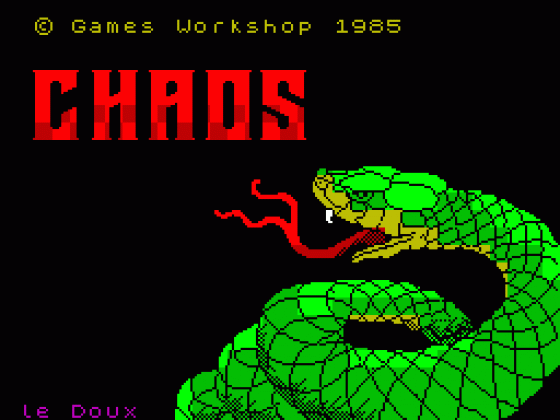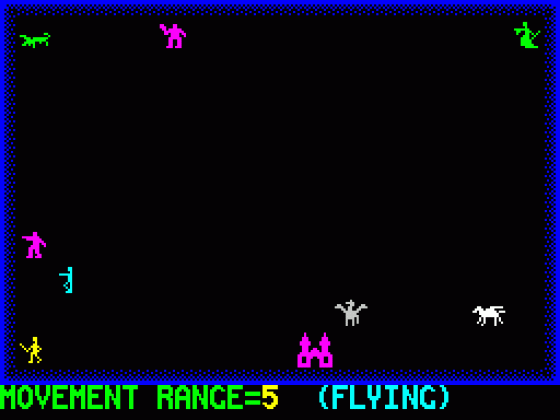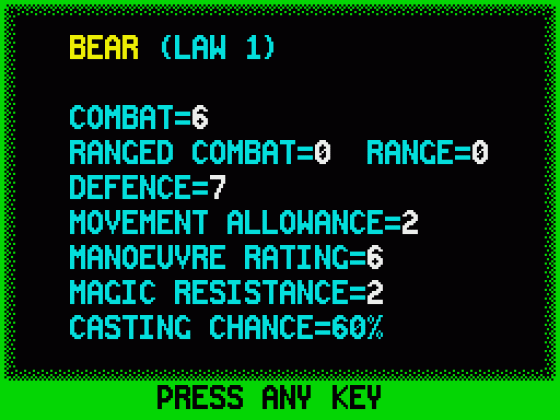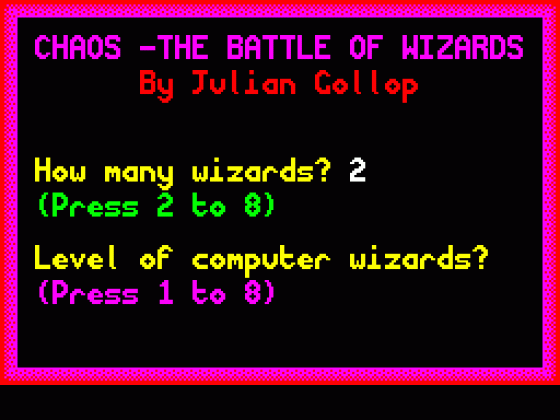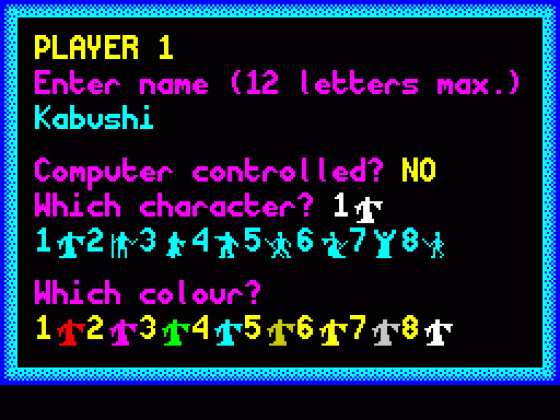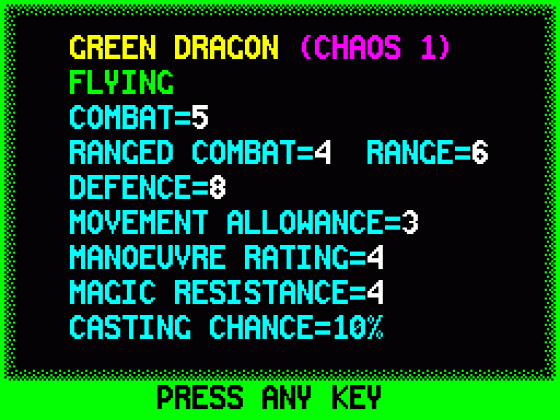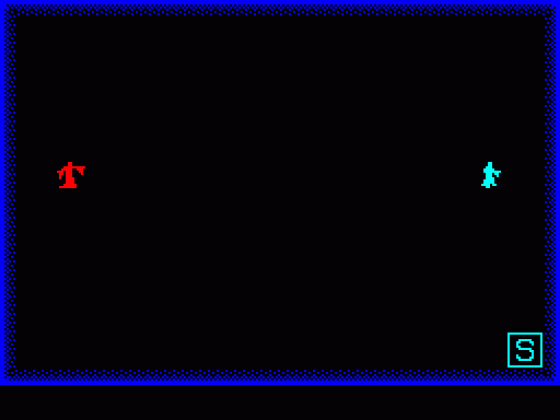Other Reviews Of Chaos For The Spectrum 48K
Chaos
A review by Bryan Skinner (Personal Computer News)
Chaos (Games Workshop)
A review by T.W. (Home Computing Weekly)
Chaos (Games Workshop)
A review
Chaos (Games Workshop)
A review by John Gilbert (Sinclair User)
Chaos (Games Workshop)
A review


 1st May 1985
1st May 1985
